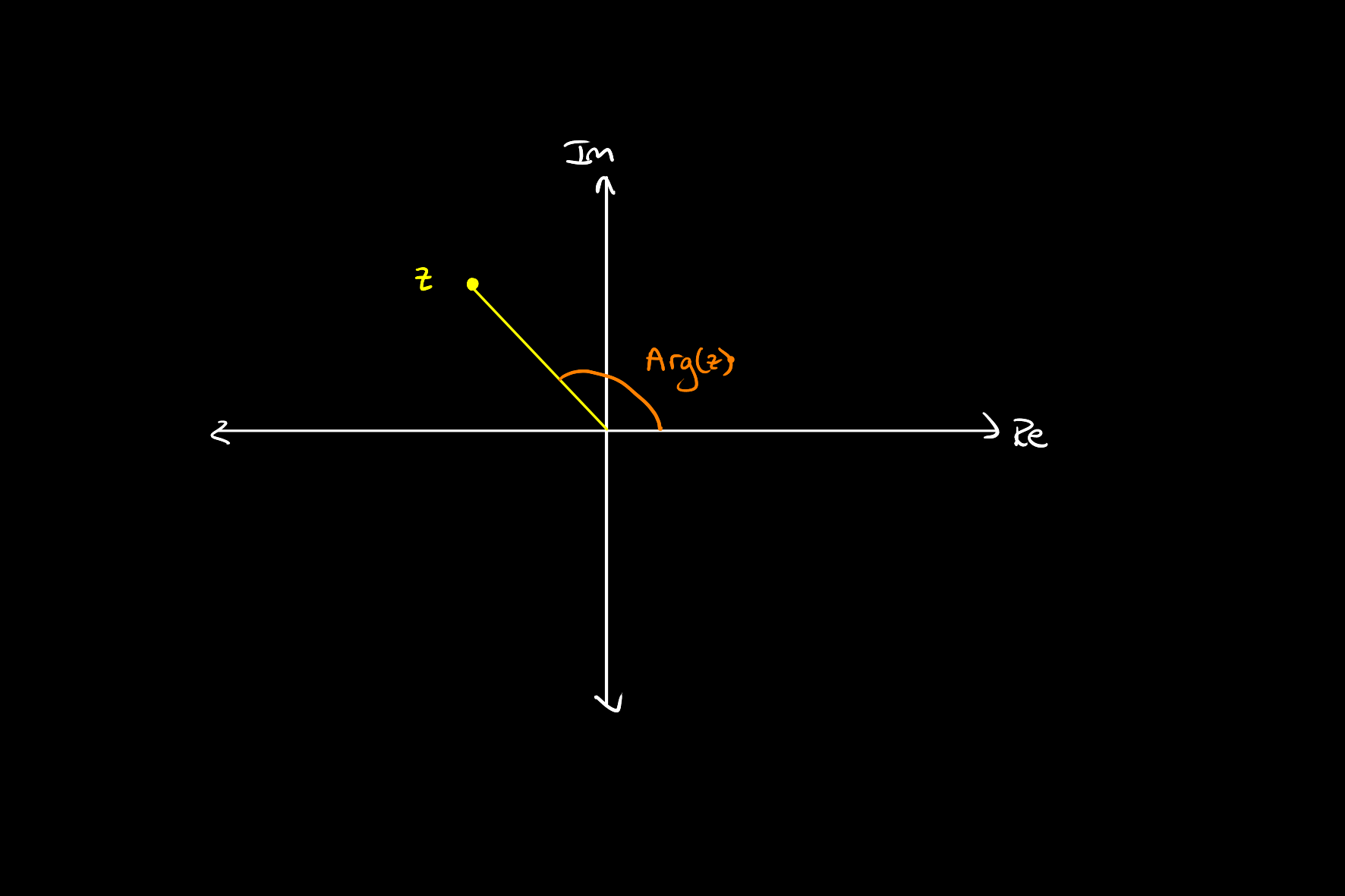Argument of Complex Number
Definition
Given a complex number
We write
Geometrically, the argument represents the angle, measured from the positive real axis, that

More generally, we write
Theorem
for some
This result, along with the fact that the principal argument is uniquely defined, follow from the equivalent fact from polar coordinates.